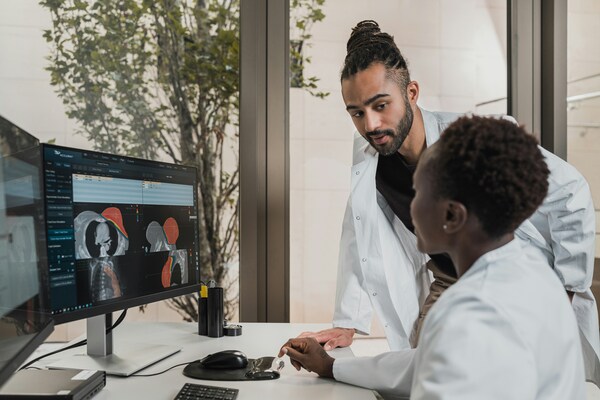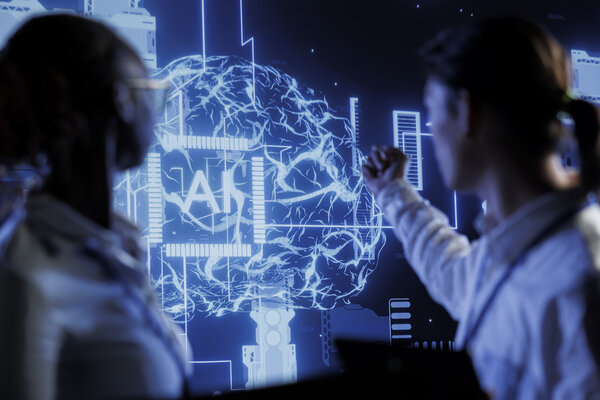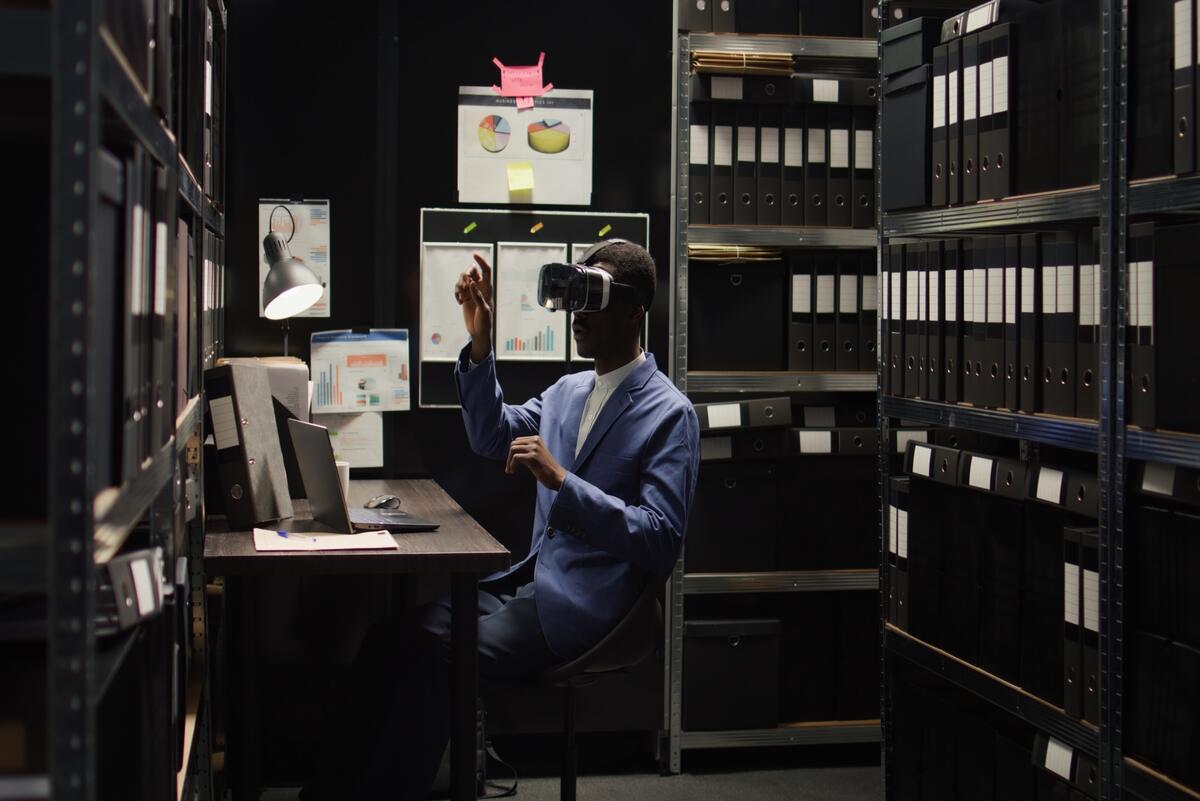What Technology Is Used in Forensic Psychology Today?
In today’s fast-paced world, forensic psychology is leveraging cutting-edge technology to enhance its methods and outcomes. Innovations such as virtual reality (VR) simulations and advanced data analytics are not just tools—they’re transforming the very foundation of how forensic psychologists approach their work.
From simulating crime scenes with VR to using big data for behavioral analysis, technology enables professionals to gain deeper insights and make more informed decisions. But how effective are these advancements in practice? Let’s dive into the world of forensic psychology technology and evaluate its transformative impact.

The Role of Technology in Forensic Psychology
Technology is revolutionizing forensic matters, enabling professionals to analyze behaviors, evaluate evidence, and provide insights with greater accuracy and efficiency. Here are some of the key technological developments transforming this vital field today:
Virtual Reality for Crime Scene Recreation
Virtual reality (VR) is transforming how forensic psychologists approach crime scene analysis. By recreating crime scenes in immersive virtual environments, VR makes it easier to visualize, analyze, and interpret complex scenarios with remarkable detail and accuracy.
Forensic psychologists, especially those with advanced expertise like a doctorate in forensic psychology, can leverage VR to enhance their assessments and decision-making processes. Walking through these recreated scenes allows professionals to uncover valuable insights that might be overlooked in traditional investigations.
Beyond investigations, VR provides a safe, controlled environment for training both students and seasoned professionals. This cutting-edge tool is reshaping the field, offering innovative methods to understand, assess, and investigate criminal cases like never before.
AI and Machine Learning in Profiling
Artificial intelligence (AI) and machine learning are revolutionizing criminal profiling, offering forensic psychologists powerful tools to uncover patterns and make data-driven predictions. These technologies excel at analyzing large datasets, helping experts identify behavioral trends and predict the actions of potential suspects with remarkable precision.
Machine learning algorithms can process past crime data to create detailed profiles of offenders, making it easier to track repeat criminals and understand their motives. AI-powered tools can also analyze vast amounts of information in seconds, significantly reducing the time and effort required for investigations.
By enhancing accuracy and efficiency, AI and machine learning are empowering forensic psychologists to solve crimes faster and more effectively than ever before.
Digital Forensics
Digital forensics is a vital aspect of modern investigations, focusing on uncovering evidence stored on electronic devices such as computers, smartphones, and tablets. Forensic experts meticulously examine these devices to extract data that can help solve crimes or even prove someone’s innocence.
The process requires precision and attention to detail, as even small mistakes can influence the outcome of a case. Advanced digital tools have made this work faster and more efficient by scanning and retrieving data in record time.
Digital forensics plays a crucial role in uncovering the truth, making it an indispensable tool in today’s investigations. From catching criminals to exonerating the innocent, its impact is transformative.
Neuroimaging Techniques
Neuroimaging is a powerful tool that allows experts to study the brain using advanced imaging technology. Techniques like MRI (Magnetic Resonance Imaging) and CT (Computed Tomography) scans provide detailed pictures of brain activity and structure, helping forensic psychologists identify abnormalities or injuries.
In forensic psychology, neuroimaging is especially valuable for assessing brain injuries or detecting mental disorders that may influence behavior. These images are not just medical insights—they serve as critical evidence in court by offering visual proof of brain conditions that may impact a case.
By providing a deeper understanding of how the brain works, neuroimaging is transforming the way forensic psychologists approach investigations and legal proceedings.

Benefits of Technology in Forensic Psychology
Technology has revolutionized forensic psychology, offering a range of benefits that have significantly improved the field’s efficiency and effectiveness. From enhancing accuracy in assessments to expediting investigations, these advancements empower professionals to uncover truths and support justice with greater precision. By leveraging cutting-edge tools, forensic psychologists can better understand human behavior, strengthen legal cases, and streamline their processes, making technology an invaluable ally in modern forensic practices.
Enhanced Accuracy
Technology has significantly improved accuracy in forensic psychology, offering tools that enhance precision in various aspects of the field. For instance, virtual reality (VR) enables detailed crime scene recreations, allowing experts to examine scenarios with unmatched clarity.
Artificial intelligence (AI) excels at identifying patterns that might be overlooked by humans, making behavioral predictions more reliable and data-driven. In digital forensics, advanced tools can swiftly and accurately scan electronic devices, reducing the likelihood of human errors.
Neuroimaging techniques, such as MRI and CT scans, provide detailed brain images that lead to more precise diagnoses, especially in court-related cases. These advancements enable forensic psychologists to deliver more reliable analyses and achieve better outcomes in their work.
Increased Efficiency
Technology has dramatically boosted efficiency in forensic psychology, streamlining processes and saving valuable time. Digital tools enable forensic psychologists to locate and analyze data quickly, significantly speeding up investigations. Virtual reality (VR) can recreate complex crime scenes in minutes, allowing experts to dive into their analyses sooner.
Artificial intelligence (AI) processes vast amounts of data within seconds, eliminating time-consuming manual searches for clues. Neuroimaging delivers fast and accurate brain scans, expediting diagnoses critical for both investigations and court proceedings.
These time-saving advancements allow professionals to manage more cases efficiently, potentially leading to higher salaries and greater career opportunities. By working faster and smarter, forensic psychologists can achieve impactful results while maintaining high standards of accuracy.
Improved Training
Technology has transformed the way forensic psychologists are trained, providing innovative tools that make learning more effective and engaging. Virtual reality (VR) offers a safe and immersive environment where students can practice by exploring realistic crime scenes, honing their observational and analytical skills.
AI tools teach future experts how to identify patterns and analyze large datasets, critical skills in modern investigations. Digital forensics tools introduce students to methods of examining electronic devices for evidence, while neuroimaging helps them interpret brain scans and understand their forensic applications.
These hands-on training technologies not only simplify complex concepts but also prepare new forensic psychologists to confidently tackle real-world cases with precision and expertise.
Better Understanding
Technology has greatly enhanced the ability of forensic psychologists to understand complex situations and provide deeper insights. Virtual reality (VR) offers clear and detailed recreations of crime scenes, allowing experts to examine every aspect with precision.
Artificial intelligence (AI) uncovers critical patterns in vast datasets, guiding experts toward the most relevant information. Digital forensics tools retrieve vital evidence from electronic devices, helping to catch offenders or exonerate the innocent.
Neuroimaging reveals how the brain functions, offering a clearer understanding of mental states and conditions. Together, these technological advancements simplify complex tasks, enabling forensic psychologists to deliver more accurate, well-informed conclusions and solutions.
Challenges of Technology in Forensic Psychology
While technology has brought transformative benefits to forensic psychology, it also introduces unique challenges that professionals must address. From ethical concerns to technical limitations, these obstacles highlight the complexities of integrating advanced tools into this critical field. Understanding and overcoming these challenges is essential for ensuring that technology is used responsibly and effectively to support justice and accurate psychological analysis.
High Costs
The financial burden of adopting advanced technology is a significant challenge in forensic psychology. Virtual reality (VR) equipment, AI tools, and specialized digital forensics devices require substantial investment. Neuroimaging machines like MRI and CT scanners are particularly expensive, making them inaccessible for many smaller organizations.
In addition to equipment costs, training professionals to use these advanced tools adds to the overall expense. This financial strain can limit the availability and widespread use of cutting-edge technologies, creating a gap between well-funded institutions and smaller organizations. Addressing these high costs is crucial to ensuring equitable access to these transformative tools in forensic psychology.
Ethical Concerns
The use of technology in forensic psychology brings significant ethical challenges that demand careful consideration. One primary concern is privacy, as digital tools often access sensitive personal information. Ensuring this is handled responsibly and with consent is essential to maintain trust.
Another critical issue is bias in AI systems, which can influence outcomes and potentially lead to unfair conclusions. Transparency in how these tools are developed and used is vital to address these biases and build confidence in their reliability.
Data misuse and security risks also pose threats, making it crucial to protect sensitive information from breaches or unethical use. By addressing these ethical concerns thoughtfully, technology can better align with the principles of justice and fairness.

Future Trends in Forensic Psychology Technology
The future of forensic psychology is being shaped by innovative technologies that promise to revolutionize the field, offering even greater precision, efficiency, and insight into complex cases. Here are some emerging advancements that are set to redefine the discipline:
Augmented Reality (AR)
AR complements virtual reality (VR) by overlaying digital information onto real-world environments. Forensic psychologists can interact with reconstructed crime scenes dynamically, leading to deeper and more nuanced analyses.
Blockchain Technology
Blockchain ensures the security and integrity of digital evidence. By creating an unalterable record of data access and usage, it reduces concerns about tampering and strengthens the credibility of evidence in court.
Advancements in Artificial Intelligence (AI)
AI can analyze vast datasets, such as social media activity or communication patterns, to uncover hidden connections or predict behaviors. Its applications in criminal profiling and behavioral analysis will continue to grow.
Natural Language Processing (NLP)
NLP tools can analyze written or verbal language to assess psychological states. This innovation could help forensic psychologists interpret communication patterns with greater accuracy.
Wearable and Biometric Technology
Devices that monitor physiological responses, such as heart rate, sweat production, or eye movement, could provide real-time insights during evaluations, interrogations, or behavioral studies.
These technologies hold the potential to revolutionize how forensic psychologists approach their work, offering tools that enhance understanding and improve outcomes. However, integrating these advancements will require ongoing ethical considerations and robust training programs to ensure their responsible use.
By embracing these trends, the field of forensic psychology can continue to evolve, better serving justice and gaining deeper insights into human behavior.
Conclusion
Technology is reshaping forensic psychology, empowering professionals with tools to analyze data, recreate crime scenes, and understand human behavior like never before. Innovations like VR, AI, and neuroimaging have transformed the field, enhancing accuracy, efficiency, and training. While challenges such as high costs and ethical concerns remain, the potential of these advancements to support justice and reveal critical insights is undeniable. By adopting these technologies responsibly and staying ahead of future trends, forensic psychologists can continue to deliver impactful, precise, and ethical contributions to their field.
FAQs
What is the role of virtual reality in forensic psychology?
Virtual reality recreates crime scenes, allowing forensic psychologists to analyze scenarios with unmatched detail and accuracy.
How does AI help forensic psychologists?
AI identifies patterns in large datasets, improves profiling, and makes behavioral predictions more accurate and data-driven.
What is digital forensics in forensic psychology?
Digital forensics involves examining electronic devices like computers and smartphones to uncover evidence for investigations.
What are the challenges of using technology in forensic psychology?
Common challenges include high costs, ethical concerns like privacy, and the potential for bias in AI systems.
What future technologies might impact forensic psychology?
Augmented reality, blockchain, and wearable biometric devices are emerging tools that could further transform the field.

